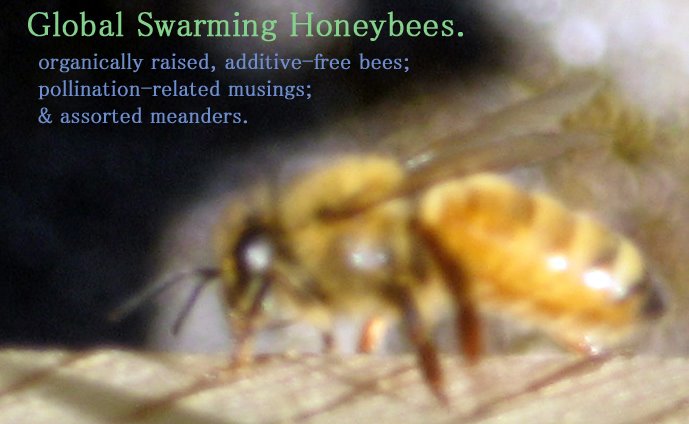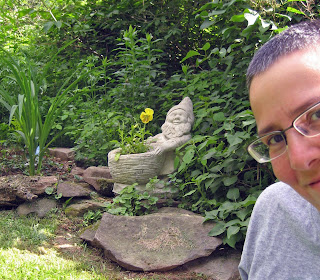"What is this 'spirit of the hive'--where does it reside?"
In his poetic, philosophically rich treatise on honeybees, The Life of the Bee, Maurice Maeterlinck asked this question regarding the mystery whereby 60,000+ honeybees in a colony carry out innumerable tasks in a highly effective, coordinated manner; locate and share data on the ever-shifting array of available nectar sources; decide when to swarm or supercede an old queen; coordinate defense of their colony; and, through countless incremental acts of cooperation, specialization, and communication, achieve the goals of reproduction and survival.
Watching the colony from the human-outside, one begins to suspect that the underpinning of this ameobic mind-body-spirit is a vast communication network that makes the Internet look quaint and the Psychic Hotline look like Amateur Hour.
Maeterlinck was grappling with these questions in 1901, and pretty much everyone who has written about honeybees before or since has wound up doing the same. It's impossible to watch a colony in action without perceiving a deeply complex mind at work. And, as humans entranced with power and hierarchy, it really messes with our heads to think of "queen" and "workers" without making all sorts of assumptions and projections about who's running the show in there.
Having been at this beekeeping thing for only a few weeks, I don't pretend to have the faintest clue about what's going on in the hives. I am watching the bees, reading as much as I can about them, and savoring the mysteries they pose.
I was pleased to come upon the article below on honeybees behavior and colony dynamics this morning. It describes some interesting new research on honeybee behavior, plus a quick overview of honeybee basics like the "waggle dance."
***
Undergraduate research shows leaderless honeybee organizing from PhysOrg.com
Undergraduate education generally involves acquiring “received knowledge” – in other words, absorbing the past discoveries of scholars and scientists. But University of North Carolina at Charlotte senior biology major Andrew Pierce went beyond the textbooks and uncovered something previously unknown.[...]
***
Of course, the article contains the annoying (requisite) pronouncement that, "Bees do not have large brains and are not capable of complex thought like humans." To which I say, Their brains may be small, but they're still outwitting the scientists trying to figure them out!
It seems most every article about how "complex" or "intelligent" an animal is includes the comforting caveat that "they're not as smart as us"—because we humans are just SOOOO smart! (It makes us feel bad to consider the possibility that intelligence takes many forms and expressions that we, in our supremely limited way of seeing things, simply fail to appreciate, recognize, or understand.)
That's what I like about the honeybees—they make us look kind of dumb.






No comments:
Post a Comment